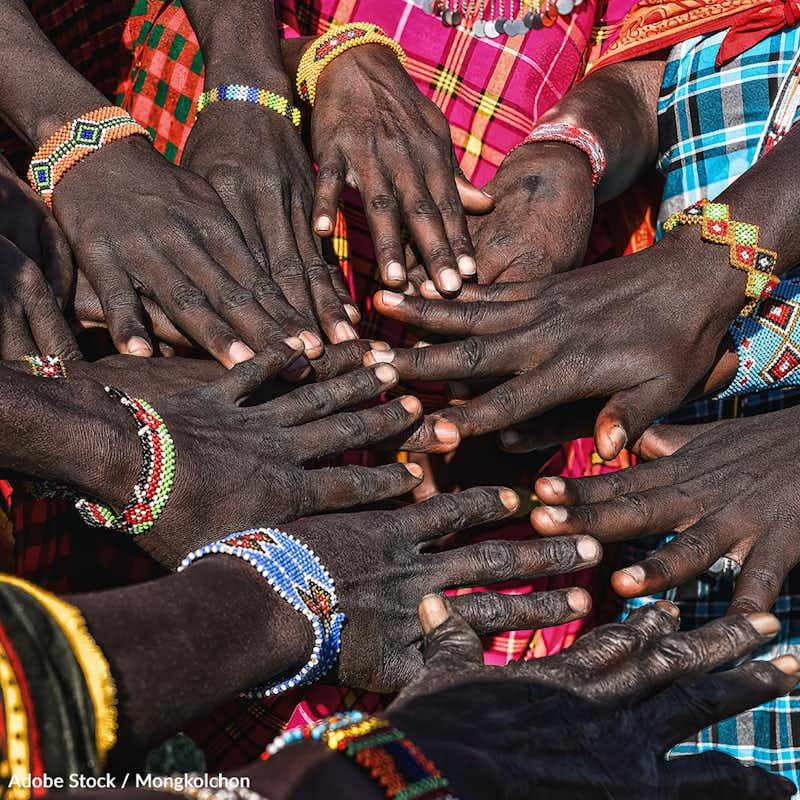Protect Indigenous Communities And Our Environment
260 signatures toward our 30,000 Goal
Sponsor: The Rainforest Site
Help us recognize indigenous ancestral domains and protect indigenous communities in the fight against environmental destruction.

Indigenous peoples are the planet’s most reliable biodiversity custodians, making up less than 5% of the global population while protecting 80% of the world’s biodiversity. Despite their critical work, indigenous groups have seen their lands seized over the last two centuries in the name of conservation1.
Indigenous people are regularly threatened by illegal evictions carried out by government agencies using forest conservation as excuse for violating rights guaranteed under court ruling2. These evictions leave children and other vulnerable community members homeless and helpless.
The UN’s ambitious 30×30 conservation goal aims to "protect" 30% of global lands and oceans by 20303. This plan relies on eliminating all human habitation from richest biodiverse regions4, further opportunity for heinous mass evictions of indigenous communities5.
We must not deprive these people of their livelihoods and cultures with no evidence that it will mitigate climate change.
As evidenced in the many places where indigenous peoples have already been displaced, the 30x30 initiative could prove to be counterproductive6. Evictions in the name of conservation have regularly failed to stem environmental degradation. Instead, land goes to the highest bidder, who inevitably exploits it for logging, mining, and other pollutive industries7.
There are no international safeguards able to prevent this.
Indigenous peoples have lived in harmony with their environments, safeguarding biodiversity for centuries8. Indigenous communities draw on their customs and traditions to harness, monitor and care for their lands. Removing them will only deprive traditional communities while empowering profiteers9.
Honoring land rights is the foundation for conserving forests sustainably, including those of national and watershed importance. We must recognize indigenous ancestral domains and equip indigenous communities for the frontline in the fight against environmental degradation.
Sign the petition and help us stand with indigenous peoples by insisting that governments recognize indigenous ancestral domains as crucial to mitigating climate disaster.
- UN Environment Programme (9 January 2017), "Indigenous Peoples: The unsung heroes of conservation."
- Minority Rights Group International (23 July 2020), "Kenyan communities report illegal evictions during COVID-19 – CLAN press release."
- Erin Eastwood, Environmental Law Institute (10 February 2021), "30x30: What This Ambitious and Visionary Goal Could Mean for Our Ocean."
- Minority Rights Group International (2 September 2020), "UN plan to protect 30 percent of the planet by 2030 could displace hundreds of millions, NGOs and experts warn."
- John Vidal, The Guardian (28 August 2016), "The tribes paying the brutal price of conservation."
- Internal Displacement Monitoring Centre (August 2021), "When Land, Knowledge And Roots Are Lost: Indigenous Peoples And Displacement."
- REDD-Monitor (4 January 2018), "In the name of conservation: Yet more forced evictions of the Sengwer indigenous people in Kenya."
- Minority Rights Group International (23 July 2020), "Kenyan communities report illegal evictions during COVID-19 – CLAN press release."
- Food and Agriculture Organization of the United States (09 Aug 2017), "6 ways indigenous peoples are helping the world achieve #ZeroHunger."
The Petition:
To the UN Environment Programme director,
While I commend your efforts to combat the climate crisis with the ambitious 30×30 conservation goal to "protect" 30% of global lands and oceans by 2030, this plan ignores the rights and critical importance of indigenous peoples as global environmental stewards.
The 30x30 plan relies on eliminating all human habitation from richest biodiverse regions, furthering opportunities for heinous mass evictions of indigenous communities.
These mass evictions are already being carried out in the name of conservation by government agencies in Africa and South America. But they regularly fail to stem environmental degradation. Instead, land goes to the highest bidder, who inevitably exploits it for logging, mining, and other pollutive industries.
Indigenous peoples have lived in harmony with their environments, safeguarding biodiversity for centuries. There is no reason children and other vulnerable community members should be forced into homelessness and helplessness for misguided attempt at conservancy.
Indigenous groups must be empowered to act as the global conservators they have been for centuries.
I implore you to put our planet on the right track for conservation and exclude any and all indigenous lands from the UN Environment Programme's 30x30 plan.
Sincerely,